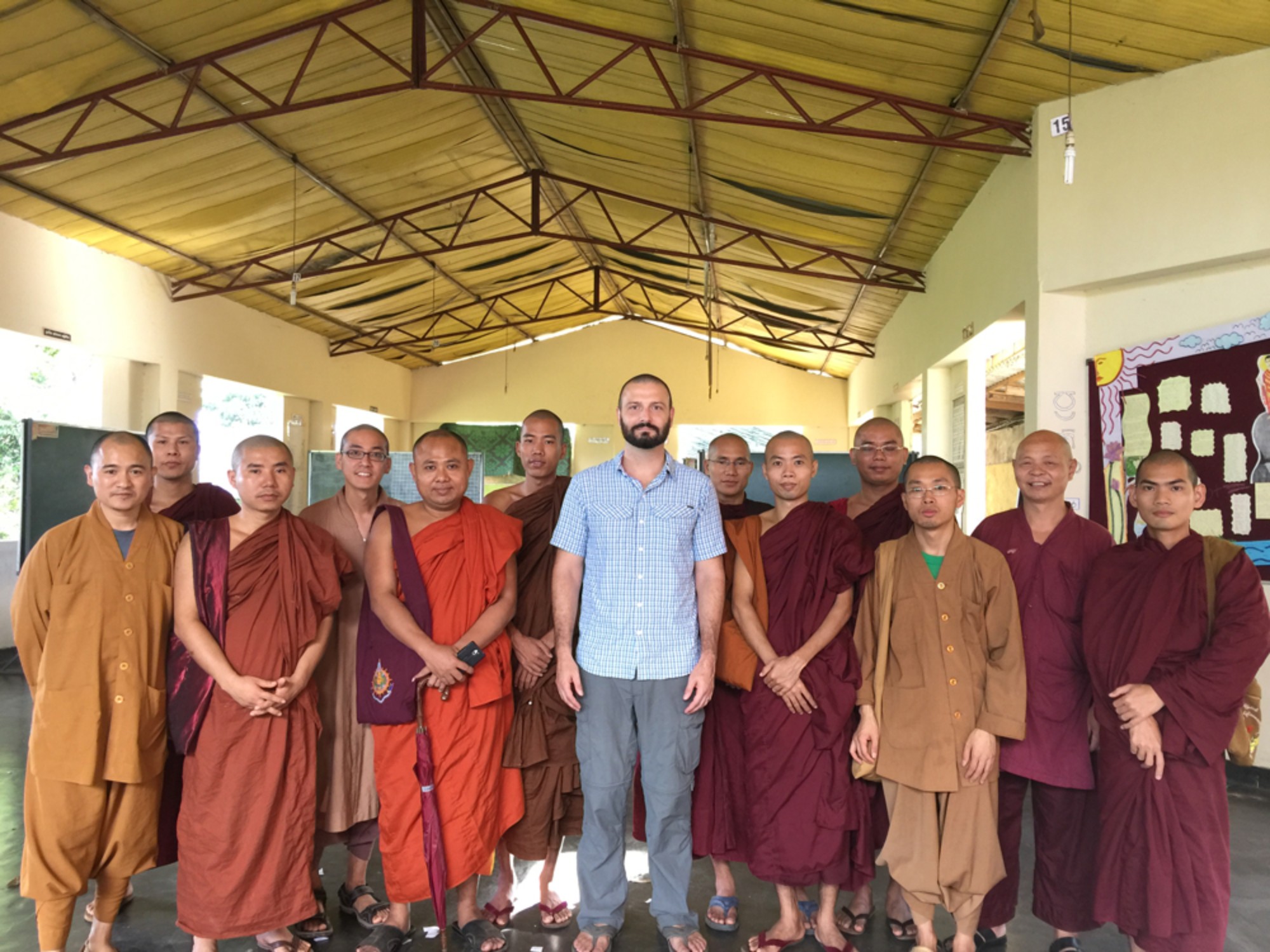Last week we caught up with John Dundon, an alum of TCP. John graduated from the TESOL Certificate Program in May 2016 and he is currently in his second semester in the TESOL/AL graduate program at Teachers College. Here's what John shared with us:
1. Why did you decide to come to Teachers College?
I had been living in New York for several years when I decided to leave my first career (as an attorney) and start a second career as a teacher. It was important for me to stay in New York, and also to find a program with rigorous academics that matched my interests. With these parameters guiding my search, choosing TC was an easy decision.
2. Can you tell me about one memorable experience in the TCP?
I actually remember being quite terrified before my first experience teaching in the practicum component of the TCP (in front of just six students). The class of course went fine, and I had fantastic support from my teaching mentor over the course of the semester. Now I regularly speak in front of groups of 50 or more students and it doesn’t phase me one bit.
3. What made you enroll into the TESOL/AL graduate program at TC? How did the TCP set you up for the TESOL/AL program?
I graduated from the TCP in May 2016 and immediately spent four months teaching English as a volunteer in India and Sri Lanka. I had zero teaching resources available to me except for my notes from the TCP program. Fortunately, my notes were more than enough to make due under the circumstances, and I was able to help my students meet their learning goals in both locations.
Upon my return to New York, I found that the combination of the TCP and my volunteer work made me very well-positioned to enter the ESL job market. Though the TCP program provided me with the tools I needed to launch a career, I ultimately decided that an M.A. in Applied Linguistics would open the door to additional opportunities.
4. What are you doing now, and how are you using what you’ve learned at TC?
I specialize in adult ESL for professional purposes and am working full-time during my M.A. program at TC.
I’m currently serving as the Co-Director of a new program called the “Legal English Institute” at Fordham University School of Law. I practiced law for nearly a decade before transitioning into teaching, and so at Fordham Law I teach classes that mix substantive, legal content with ESL topics. Most of our students are foreign-licensed attorneys who hope to eventually enroll at a U.S. law school and sit for a bar exam in a U.S. jurisdiction.
I also teach ESL to internationally-trained nurses at the Center for Immigrant Education and Training at LaGuardia Community College. In this program, I co-teach with nursing professors who address substantive medical content at the same time that I teach ESL topics. Our students hope to take the NCLEX-RN exam in order to obtain nursing licenses here in the US.
I actively apply the content from the TCP and from my M.A. program in both teaching roles. There’s almost always something from one my TC classes that has relevance to my teaching, and likewise there’s almost always something from a recent teaching experience that is pertinent to my class discussions and assignments at TC.
5. We noticed that you were one of the presenters at the ALP Vocabulary Conference this past weekend. Can you briefly share what you presented on?
This weekend I presented about the ESL teaching methodologies that I use at Fordham Law.
There are very few teaching resources available for a combined law and ESL program, and so I’ve had to develop my own materials and methods. Legal terms tend to be extremely interdependent, meaning that it’s difficult to teach vocabulary items without also exploring the substantive framework that underlies each word’s definition. Accordingly, I tend to teach vocabulary in groups of words with related meanings or uses.
In my presentation, I described my general approach to this kind of teaching, as well as its applications to other types of programs that mix content and language. I received a lot of positive feedback from the presentation, and I also learned a great deal from discussions with audience members before and after my talk.
